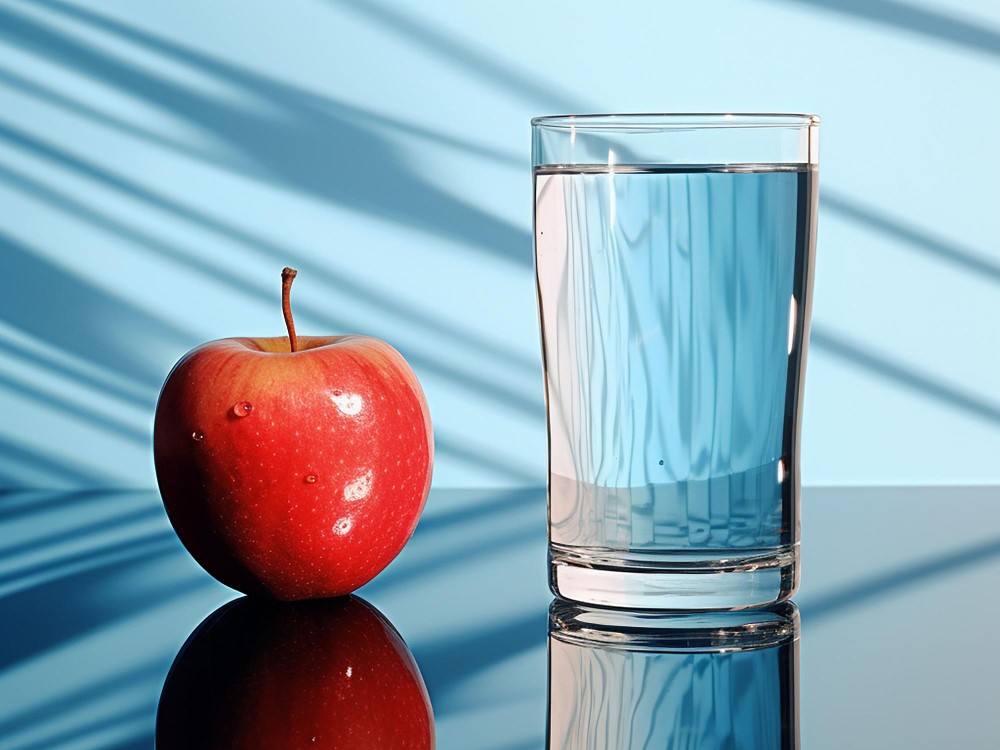How to Maintain Proper Hydration Level?

Water is a fundamental component of our body, constituting about 60% of an adult's mass. Maintaining the correct level of hydration is crucial for health and well-being. So, how do you ensure proper hydration?
1. Drink Water Regularly
The simplest way to maintain proper hydration is by drinking water regularly. It is recommended to consume about 2 liters per day, although the requirement may vary depending on age, gender, body weight, and physical activity level. Remember to drink water throughout the day, not just when you feel thirsty.
2. Eat a Water-Rich Diet
Water is not only obtained from beverages but also from food. Vegetables and fruits are excellent sources of water. Cucumbers, watermelon, oranges, strawberries, and lettuce have high water content, which helps maintain hydration levels.
3. Avoid Excessive Coffee and Alcohol Consumption
Coffee and alcohol have diuretic effects, which means they can contribute to water loss from the body. When consuming these beverages, it's important to pay attention to additional hydration. For every cup of coffee or alcoholic drink, it is beneficial to drink an extra glass of water.
4. Monitor Hydration During Physical Activity
During intense physical activity, the body loses more water. It is important to drink water before, during, and after exercise. Athletes can also use isotonic drinks that replenish electrolytes lost during exertion.
5. Pay Attention to Signs of Dehydration
Symptoms of dehydration include dry mouth, decreased urination, darker urine, headaches, fatigue, and dizziness. If you notice these symptoms, increase your water intake.
6. Set Reminders
In daily hustle, it’s easy to forget to drink water regularly. Setting reminders on your phone or using hydration monitoring apps can be helpful. You can also use a bottle with a measurement scale that subtly reminds you of the amount of water you should drink.
Summary Maintaining proper hydration levels is crucial for health and well-being. Regularly drinking water, eating a water-rich diet, avoiding excessive coffee and alcohol consumption, and monitoring hydration during physical activity are fundamental principles that will help you maintain proper hydration.
Recommended

Dispenser with Tap Glass 6.5 l

Sparkling Water Maker Black AQUADREAM

Sparkling Water Maker Red AQUADREAM

Sparkling Water Maker White AQUADREAM

Water Bottle Glass 1.1 l

Sparkling Water Maker Black AQUADREAM

Water Bottle Glass 600 ml

Water Bottle for Carbonator White AQUADREAM 1.1 l

Water Bottle for Carbonator Black AQUADREAM 1.1 l

Sparkling Water Maker Red with CO2 Cylinder AQUADREAM

Sparkling Water Maker White with CO2 Cylinder AQUADREAM

Thermos Bottle Steel Blue Vacuum 580 ml

Dispenser with Tap Glass 6.7 l

Dispenser with Tap Glass 5.4 l

Dispenser with Tap and Stand Black 4.2 l

Dispenser with Tap Glass 8 l

Dispenser with Tap Glass for Refrigerator 3.5 l


